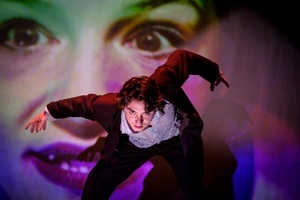Nabucco
In the organizer's words:
The Babylonian king Nebuchadnezzar II is a biblical symbol of hubris, punishment and purification, for would we otherwise still be familiar with his name if he had not made a major appearance in the Third Book of Daniel in the Old Testament? In one of his speeches, he recounts how he fell into madness in accordance with a prophecy, was cast out and lived like an animal. Only the realization of the "God of heaven" brought him back into human society. The dramatic potential of the subject matter had already been recognized before Giuseppe Verdi, but it was the then little-known 27-year-old composer who brought it to fame. In 1840, his third opera "Nabucco" made him famous throughout Europe in one fell swoop and opened a new chapter in the history of Italian opera. Melody and drama are closely linked here. Everything is big in this opera based on the Bible: the story, the music, the characters, the emotions, the intrigues. And yet vulnerable people shine through in the parable-like struggle for power and existence. Nabucco storms the temple in Jerusalem and takes the Hebrews into Babylonian captivity. However, his daughter Fenena is among the Hebrews with her lover Ismaele. His second daughter, Abigaille, violently seizes power when she realizes that she has no legitimate prospects of taking the throne. Nabucco finally declares himself a god in his victory frenzy, falls into mental derangement as a result of divine punishment and becomes Abigaille's prisoner. His confession to the "God of heaven" brings about a turning point and a return to power, which he now exercises in a different way: He gives freedom to the captives. The people of the Hebrews, the chorus, thus become the real protagonists of the plot and their mournful song "Va, pensiero, sull'ali dorate", based on the 137th Psalm, became Verdi's most famous melody, perhaps even in the entire history of opera.
Ben Baur, who has already created the stage for "Salome" and "A Masked Ball" in Cologne, is now also introducing himself as a director at the Cologne Opera. Sesto Quatrini, an expert in the Italian repertoire, conducts the Gürzenich Orchestra.








